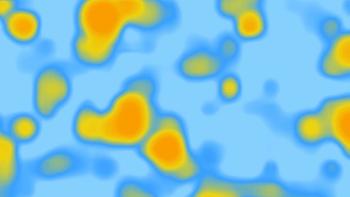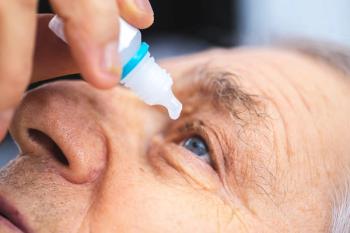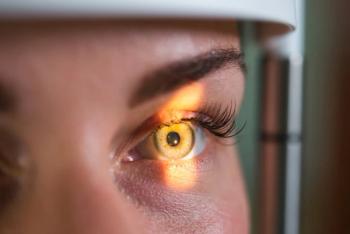
Retraining the brain to tackle visual snow syndrome with mindfulness-based cognitive therapy
The investigators use mindfulness-based cognitive therapy (MBCT) on patients who have never previously practiced the technique, with the aim of possibly re-training their brains to remove their static-type images.
An investigative team from Moorfields Eye Hospital and Guy’s and St. Thomas’, London, is examining the role of mindfulness in potentially helping people who have visual snow syndrome, according to a recent press release from Moorfields Eye Hospital.
Patients affected by visual snow syndrome report persistent flickering white, black, transparent, or colored dots that resemble static from old televisions sets or as if they are looking through a snow globe. The syndrome results from a disruption in the brain networks that involves the visual pathway. This untreatable condition often is associated with migraine and tinnitus.
The new study is underway at Moorfields Eye Hospital and Guy’s and St. Thomas’ and is led by Sui Wong, MD, a consultant neurologist and neuro-ophthalmologist. In this study, the investigators use mindfulness-based cognitive therapy (MBCT) on patients who have never previously practiced the technique, with the aim of possibly re-training their brains to remove their static-type images, according to the press release.
The study follows a recently reported feasibility study1 published in the Journal of Neuro-Ophthalmology conducted by the same team. Participants in the study underwent an 8-week course of MBCT in small groups followed by functional magnetic resonance imaging (MRI) scans for some participants. The feasibility study, which ended in 2022, found that the participants reported visual improvements that were reflected in the results of their functional MRI scans.
According to Wong, “This research uses mindfulness training as a potential treatment for visual snow. Our feasibility study on functional MRI scans already showed it can improve visual snow symptoms, correlating with a change in the brain’s visual network – like a form of brain training to modify brain pathways.”
She continued, “In the new study, we will test how mindfulness can improve the brain’s visual network to filter out the unwanted images to improve or resolve symptoms of visual snow syndrome.”
MBCT
MBCT is an established 8-week course developed by Segal, Williams, and Teasdale.2 The technique was originally designed to prevent depression.
Wong explained that in the feasibility study, she and her colleagues customized MBCT by replacing discussions about preventing depression, with discussions relevant to visual snow syndrome. The referred the customized technique as “MBCT-vision.”
During the course, the group meets once a week, and the participants then practice at home every day.
The press release described the experience of Aila Collins, age 29 years, who took part in the initial study using mindfulness after she developed visual snow in 2018. She is a customer success manager from Tottenham in north London, who reported that her visual symptoms developed during a stressful time in her life.
She said: “Out of the blue, my vision went grainy, like television static and, over time, I also started seeing floaters, halos around lights, ghosting around objects, flashes, after-images and my vision was shaky. It was an absolutely awful experience. I was scared that I’d lose my vision.”
She learned about Wong’s work and joined the 8-week course. She said, “By the end of the 2 months I noticed some positive changes in the intensity of some of my symptoms.”
The study is currently enrolling individuals with visual snow, which should be severe and diagnosed by an ophthalmologist, neurologist, or neuro-ophthalmologist. Potential participants should not have previously undertaken the mindfulness technique. More information is available at
References
1. Wong SH, Pontillo G, Kanber B, et al. Visual snow syndrome improves with modulation of resting-state functional MRI connectivity after mindfulness-based cognitive therapy: an open-label feasibility study. J Neuro-Ophthalmol. 2023; 10.1097/WNO.0000000000002013; doi: 10.1097/WNO.0000000000002013
2. Segal ZV, Williams JMG, Teasdale JD (2002). Mindfulness-based cognitive therapy for depression: A new approach to preventing relapse. 2nd ed. New York, Guilford Press.
Newsletter
Want more insights like this? Subscribe to Optometry Times and get clinical pearls and practice tips delivered straight to your inbox.








































